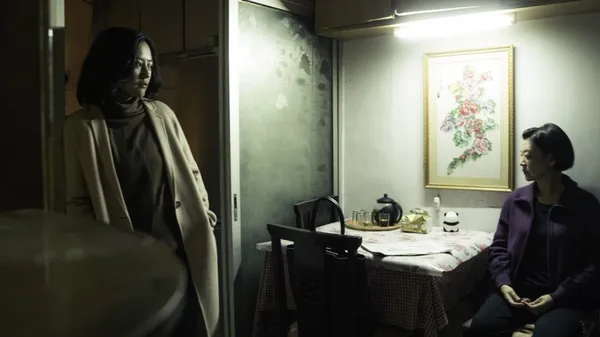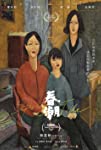Eye For Film >> Movies >> Spring Tide (2019) Film Review
Spring Tide
Reviewed by: Jennie Kermode

A sprawling tale of conflict between three generations of women, Spring Tide mines the tension that stems from poverty and the expectations attached to family relationships. There is little love lost between sixtysomething Ji Minglan (Elaine Jin Yan-ling) and her fortysomething daughter Guo Jianbo (Hao Lei), who might as well be strangers but for the shared past that each sees in a very different way. Each seems to have some affection for Jianbo's nine-year-old daughter Guo Wanting (Qu Junxi), but as she becomes a pawn in their attempts to manipulate one another, that's barely enough to keep her from harm. Meanwhile she is trying to find her own direction, at ease in the world in a way that, perhaps, neither of the older women has had the chance to be.
Where does all this bitterness come from? We get the sense that neither wanted to be a mother, that they resent having given up too much of themselves and fallen short of their ambitions, but for Jiangbo it's easier to place the blame on her mother than her child. There's a dark history surrounding Jiangbo's father, who is long gone, but Jiangbo still thinks of him as the perfect parent, as somebody she was deprived of. She takes out her frustrations with a lover in a relationship that seems comfortable for both partis due to the lack of commitment or even serious conversation involved. Minglan, meanwhile, has a loving boyfriend who wants to shield her from pain but is confounded by the fact that she is always starting fights.

There are hints here of the different social expectations with which each woman grew up, and how these have shaped their lives - a sense that each represents a phase in the creation of modern China, having laboured to beget the prosperity and relative freedom that make Qu's life full of promise. With no real narrative structure, director Yang Tian-yi makes us privy to a series of confrontations and key moments that contribute to the gradual breakdown of their family unit. The story seems as chaotic as their apartment but gradually builds towards a final, one-sided confrontation which goes on for too long, perhaps deliberately, squandering its dramatic potential in favour of reminding us of the difficulty that comes from dealing day after day with inescapable stress.
It's an interesting contribution to an increasing focus, in Chinese film, on women's lives lived outside traditional frameworks and without traditionally assumed comforts. Jake Pollock's cinematography gives it a deliberately downbeat quality, with muted light that often hints at views comprised largely of concrete. The women are hemmed on by their urban surroundings; they no longer have room to live as families once did, but must reconcile themselves to a new world whose opportunities - such as women's pursuit of sexual satisfaction, which until recently was rarely addressed onscreen - are accompanied by new burdens. Still, there is the sense that the family unit has significance if only because the country is so vast and it is perhaps less frightening to be hated than not to be noticed at all.
Though it's ultimately too messy to make much of a point, Spring Tide has personality and clear ambition. It's a film that cineastes with an interest in China's developing output will not want to miss.
Reviewed on: 25 Feb 2021
















